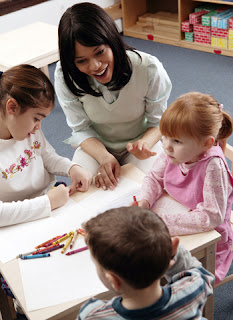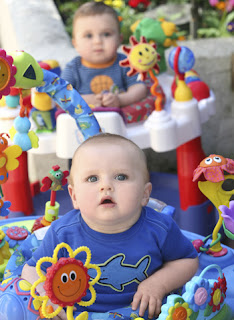The ability of a child to integrate into a new environment depends on its be shaped But also how they develop patterns of adaptation. Leaving home and integrated into a new environment, with peers those who have never seen, with different rules to be learned and in a strange place, not easy. What's more, mom and dad are not there to lend a hand.
Tips for successful adaptation to the child's school
To get your child adjust well to nurseryor school Especially if it is the first time that you bring, you should follow these tips to help you overcome this situation naturally.
1. Adaptation times. At first, take your child for only a few hours at the nursery and gradually increasing the time to see. Every child needs your time.
2. Objects of attachment. Let your child wear, if they so wish, your Toy Or something that is familiar and to keep it together with your home.
3. Quick goodbyes. Avoid prolong fired in excess. Be transmitted to the child safety and prevent dramatics. Your child should know that in a while you come to pick you and what you are doing is best for him.
4. Motivation and encouragement. Upon leaving the nursery, your child spends time, Playing with it. It's good to discover that what is in the center is not so different from what you normally do at home. Encourage her to share with you the experiences learned in school. And it shows joy and enthusiasm for their progress.
5. Inputs and outputs. It is desirable that the mother or father will take you and pick you up. This routine will provide security and also become used before the change.
6. Direct contact. Whenever you consider it necessary to talk to the teacher or teacher about your concerns, your concerns and any changes you observe in the child.
7. Activities. Looking to be informed of the activities being carried out in class: tokens, new songs, Seasons, etc., to understand and enhance learning.
8. Evolution and stages. The aspects of the child's development should be coordinated with the educators (withdrawal of the diaper or pacifier) To be kept in the same way at home and at school.
9. Food. Try to keep in mind what you eat each day in the nursery, asking for the menu, so that we may balanced diet.
10. Relaxed atmosphere. For a better adaptation of the child to the nursery should not start your day in a hurry or hardship for leaving home. So no rush in the morning. Try to wake in time for breakfast quietly and without strain is directed to the nursery.
Tips to save on back to school
Before school starts, parents will have to go through the shops, bookstores, to buy everything your child will need to start a new course. The acquisition of all the school supplies costs, ... And how! The libraries are beginning to fill with tails, large supermarket chains respond to the requests made by some parents in advance, and while the kids encourage their parents to "sink" in costs and expenses. At home, when they work, parents meet with the children to line and put names to the books, and a chance to make a "clean" in the closet, what no longer serves to clothe the children. And another surprise! Children usually grow in summer, and some clothes may no longer serve them. Thus, the costs soar, many parents do not know what to do.
Experts advise parents to plan before you start shopping. Make a list prior to what they really need their children, investigate and compare the prices between different stores.
There is no reason for children to begin the school year with all again. Depending on their age, some children tend to be more or less influenced than others. Are driven by advertising, by the opinions of friends, and begin to make comparisons.
At present, parents should be more restricted potential. If the bag or case is in good condition, why buy another one or another? We suggest that you educate children about responsible consumption and the reuse of some materials. At a time when you need a good financial outlay, it is best to save what you can. The savings can start from the choice of school, depending on whether public, private or agreed to transport or school meals.
You can dispense with the school transport, for example, combining routes with other families who live in the same area. You can save more if you point the child to the room, and then bring food from home. It also can help ease the cost, using the uniform. According to experts, the costs of clothing, the uniform, come to become cheaper by 40 percent. Other than that, do not forget that parents also can seek grants and subsidies which governments in these periods and pay for these expenses.























